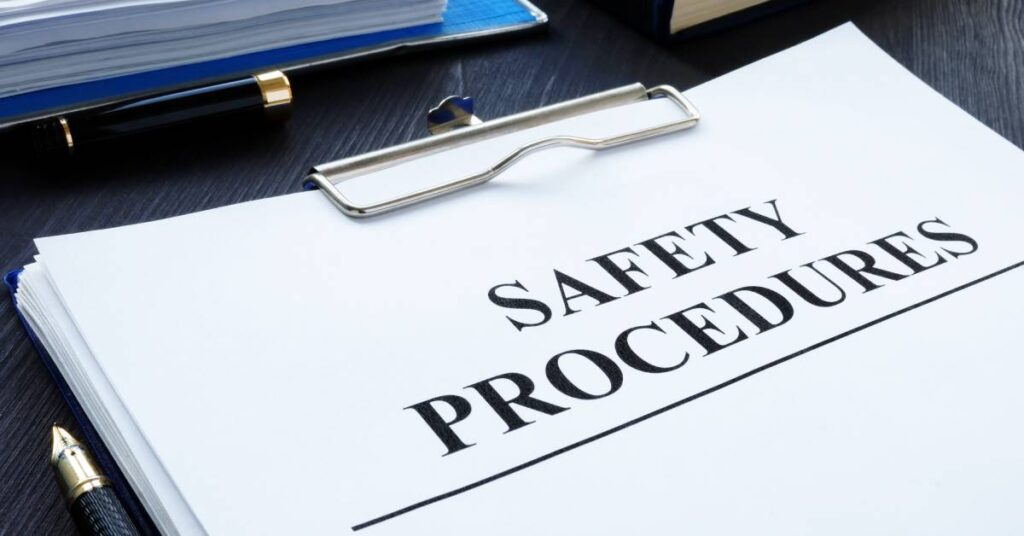The oil and gas industry presents unique challenges and risks. For contractors operating in this sector, it’s crucial to prioritize safety to protect workers and ensure project success.
One effective way to achieve this objective is through obtaining the necessary safety certifications. These eight important oil and gas safety certifications enhance safety protocols and demonstrate a commitment to industry standards.
The Importance of Safety Certifications

Safety certifications play a vital role in maintaining a safe work environment. They provide contractors with the knowledge and skills necessary to manage risks effectively.
By adhering to industry standards, contractors can protect their employees and minimize the likelihood of accidents and injuries. Safety certifications also enhance a contractor’s reputation and competitiveness in the market, making them more appealing to potential clients.
Common Oil and Gas Safety Certifications
Several safety certifications are critical for oil and gas contractors. Here are some of the most recognized and beneficial certifications:
1. OSHA 30-Hour General Industry Course
The Occupational Safety and Health Administration (OSHA) offers various safety training programs, with the 30-hour general industry course being one of the most popular. This course provides an in-depth understanding of workplace safety regulations, hazard recognition, and risk management. Completing this course equips contractors with essential knowledge about safety protocols that are applicable to the oil and gas sector.
2. HAZWOPER Certification
The Hazardous Waste Operations and Emergency Response (HAZWOPER) certification is essential for workers who deal with hazardous materials. This certification covers the necessary safety procedures for handling, storing, and disposing of hazardous substances. It’s crucial for contractors involved in oil and gas projects, as they often encounter hazardous materials that require specialized handling.
3. First Aid/CPR/AED Certification
While not exclusive to the oil and gas industry, first aid, CPR, and automated external defibrillator (AED) certifications are invaluable. These certifications ensure that employees can respond effectively to medical emergencies. In an accident, having trained personnel on-site can make a significant difference in the outcome, potentially saving lives.
4. Rigger and Signalperson Certification
For contractors involved in lifting operations, rigger and signalperson certifications are vital. These certifications provide the necessary skills and knowledge to safely rig loads and communicate effectively during lifting operations. Having workers certified in rigging and signaling reduces the risk of accidents and equipment damage.
5. SafeLand USA Certification
SafeLand USA is an industry-wide safety training program designed specifically for the oil and gas sector. This certification provides essential training on safety awareness, hazard recognition, and emergency response. SafeLand USA certification is widely recognized and often required for contractors working on drilling sites and oilfields.
6. ISNetworld Certification
ISNetworld is a contractor management platform that helps companies maintain compliance with safety standards. Contractors can obtain ISNetworld certification by meeting specific safety requirements and demonstrating adherence to safety regulations. Being ISNetworld certified enhances a contractor’s credibility and opens doors to new opportunities in the oil and gas sector.
7. PEC Safety Certification
The PEC (Petroleum Education Council) safety certification focuses on training for employees in the oil and gas industry. The PEC certification covers a range of safety topics, including hazard recognition, emergency response, and safe work practices. This certification is essential for contractors seeking to improve their safety culture and comply with industry standards.
8. NIOSH Training for Oil and Gas Workers
The National Institute for Occupational Safety and Health (NIOSH) offers various training programs tailored for oil and gas workers. These programs address specific hazards associated with the industry, including noise exposure, respiratory protection, and fall protection. NIOSH training equips contractors with valuable knowledge and skills to maintain a safe work environment.
Benefits of Obtaining Safety Certifications
Obtaining safety certifications offers numerous advantages for oil and gas contractors. Here are some of the key benefits:
Enhanced Safety Culture
Investing in safety certifications demonstrates a commitment to creating a culture of safety within the organization. When employees see that their employer prioritizes safety, they’re more likely to adopt safe work practices and report hazards.
Reduced Accident Rates
With the knowledge gained through safety certifications, contractors can implement effective safety protocols that reduce the likelihood of accidents and injuries. This proactive approach can lead to lower accident rates, minimizing downtime and associated costs.
Increased Competitive Edge
In a competitive industry, having safety certifications sets contractors apart from their competitors. Clients often prefer to work with certified contractors, knowing they prioritize safety and compliance with industry standards.
Compliance With Regulations
The oil and gas industry is subject to numerous regulations and safety standards. Obtaining safety certifications helps contractors remain compliant with these regulations, reducing the risk of legal issues and penalties.
Access to New Opportunities
Many clients require contractors to have specific safety certifications before considering them for projects. By obtaining these certifications, contractors can access a broader range of job opportunities and contracts.
Safety Certification Program Implementation

Establishing a safety certification program within an organization requires careful planning and execution. Here are some steps to help contractors implement an effective safety certification program:
Identify Relevant Certifications
Start by identifying the safety certifications that are most relevant to the organization and the specific projects it undertakes. Consider industry standards and client requirements when selecting certifications.
Develop a Training Plan
Create a comprehensive training plan that outlines the necessary training programs for each certification. Schedule training sessions and give employees access to the resources needed to complete their certifications.
Monitor Progress
Track employees’ progress toward completing their safety certifications. Regularly assess training effectiveness and adjust the training plan as needed to help all employees achieve certification.
Foster a Culture of Safety
Promote a culture of safety within the organization. Encourage open communication about safety concerns and emphasize the importance of adhering to safety protocols.
Review and Update Certifications Regularly
Safety certifications often have expiration dates or require periodic renewal. Establish a system to review and update certifications regularly to maintain ongoing compliance with industry standards.
Safety certifications are crucial for oil and gas contractors seeking to sustain a safe working environment. By obtaining these important oil and gas safety certifications, contractors can enhance safety practices, comply with regulations, and demonstrate a commitment to safety excellence.
Implementing ISN safety programs alongside these certifications further reinforces a culture of safety within the organization. By partnering with Compliance Management Services, your organization can navigate the complexities of compliance and increase its reputation within the oil and gas industry. We’ll help you incorporate safety certifications into your daily practices so you can create a safer and more productive work environment.






